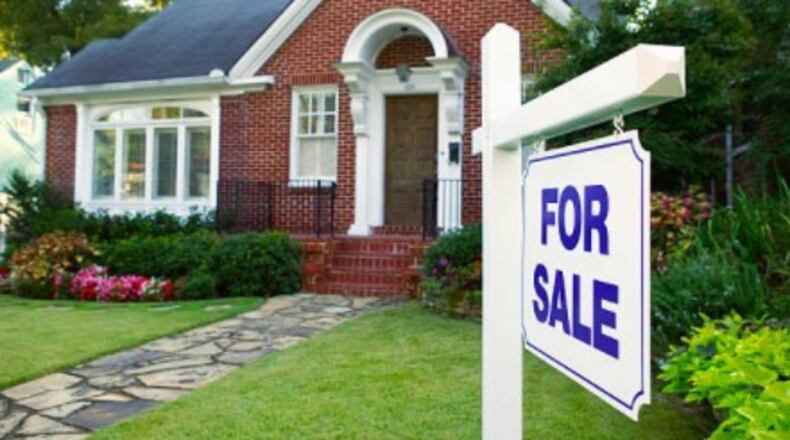Metro Atlanta home prices jumped in May, continuing a year-long surge that has sharply lifted prices from the market’s brief freeze during the first weeks of the pandemic.
The median price of a home sold last month climbed 5.2% from April to $363,000, up 27.4% from May 2020, according to the Atlanta Realtors Association.
Many factors have powered rising demand, but sale listings have fallen, increasingly pitting clusters of buyers against each other bidding for a small number of homes, said Cynthia Lippert, the association’s president. “Scarce inventory is certainly playing a role.”
In a market where buyers and sellers have roughly equal bargaining power, the number of listings is equal to about six months of sales, experts say. But inventory has plummeted to about 1.1 months.
That is turning a growing number of listings into high-intensity auctions with multiple bids above asking price.
Wannabe buyers flock quickly to attractive listings and are not hesitant about putting down a bid, often for cash, while also offering to pick up fees that typically would be paid by the seller, said Torrence Ford, owner of Re/Max Premier, an Atlanta real estate brokerage.
“Every listing I take, I have between six and 29 offers within 72 hours,” said Ford. “Every listing I get, we are seeing prices go over the asking price. Every single one.”
At the pandemic’s start, some sellers blanched at the notion of strangers in their homes and they would not list it for sale. As inventories kept shrinking, many potential sellers knew they could get a good price, but they began to wonder if they could find a home for themselves afterwards.
The shortage of supply grew worse.
New housing construction has not come close to filling the gap, a kind of hangover from the burst of the housing bubble more than a dozen years ago, said John Hunt, a principal at MarketNsight, a housing research firm.
Since the recession of 2007-2009, homebuilding has fallen far short of population growth, and returning the market to balance takes time, he said. “We under-built for 10 years so it is going to take us 10 years to build out of it. That’s not me, that’s math.”
And while the supply side is constrained, demand is getting a jolt, he said.
Despite the immense economic pain inflicted by the pandemic, the lion’s share of damage was to lower-wage earners who were more typically renters than buyers. Moreover, the largest generational cohort was stabilizing their finances, moving up in their careers, coupling up, having children and considering homeownership.
“We just switched on this enormous beast called the millennials,” Hunt said.
Home economics got further fuel from “the wealth effect,” said Rajeev Dhawan, director of the Economic Forecasting Center at Georgia State University.
After a severe but brief slump, the stock market boomed, so that many people — whether affluent investors or holders of 401(k)s — felt richer, Dhawan told a recent MarketNsight conference. “The housing market is closely tied to the stock market.”
One way around a bidding war is through word of mouth. When Ford at Re/Max Premier hears of a possible seller, he looks for a likely buyer and quickly connects them.
Once a home is listed with a major service, it will be seen by thousands of agents and their clients. But they won’t bid on a house if they don’t know it’s for sale.
“There are a lot of off-market transactions,” Ford said. “They haven’t listed the house. They haven’t put a sign in the yard. But they know me.”
According to Zillow, buyers on one-third of the homes sold in metro Atlanta in March paid more than the asking price. A year before, just one in eight sold above list price. The average home listed for sale in metro Atlanta was on the market for six days before being sold, Zillow said.
There were 6,631 homes sold last month in the 11 counties tracked by the Realtors Association reports, and 75% of the sales were in the core four counties. Fulton had the most homes sold, 1,760, followed by Gwinnett, Cobb and DeKalb. Fulton also had the highest median price: $410,000.
There were 8.0% fewer homes sold in May than in April, not a good sign long-term for homeownership, said Lippert of the realtors association.
The shrinkage of supply was great for anyone who was selling, and it probably won’t stop the more affluent buyers who have more homes to choose from. But the scarcity of homes at the lower end of the price range is shutting some people out of the market.
“There is a growing contingent of buyers that are likely prohibited from making a move at this time,” she said.
Metro Atlanta* home sales, May, 2021
Number of homes sold: 6,631
Median sales price: $363,000
Compared to May, 2020
Number of homes sold: +27.5%
Median sales price: +27.4%
Compared to April, 2021
Number of homes sold: -8.0%
Median sales price: +5.2%
Source: Atlanta Realtors Association
*For 11-county area that includes Cherokee, Clayton, Cobb, DeKalb, Douglas, Forsyth, Fulton, Gwinnett, Fayette, Henry and Paulding.
About the Author
Keep Reading
The Latest
Featured



